TPO - Phu Chau Temple, also known as Noi Temple (in Ward 5, Go Vap District, Ho Chi Minh City) is isolated on an islet in the middle of Vam Thuat River - a tributary of the Saigon River. Mysterious anecdotes about the origin of...
TPO - Phu Chau Temple, also known as Noi Temple (in Ward 5, Go Vap District, Ho Chi Minh City) is isolated on an islet in the middle of Vam Thuat River - a tributary of the Saigon River. Mysterious anecdotes about the origin of...
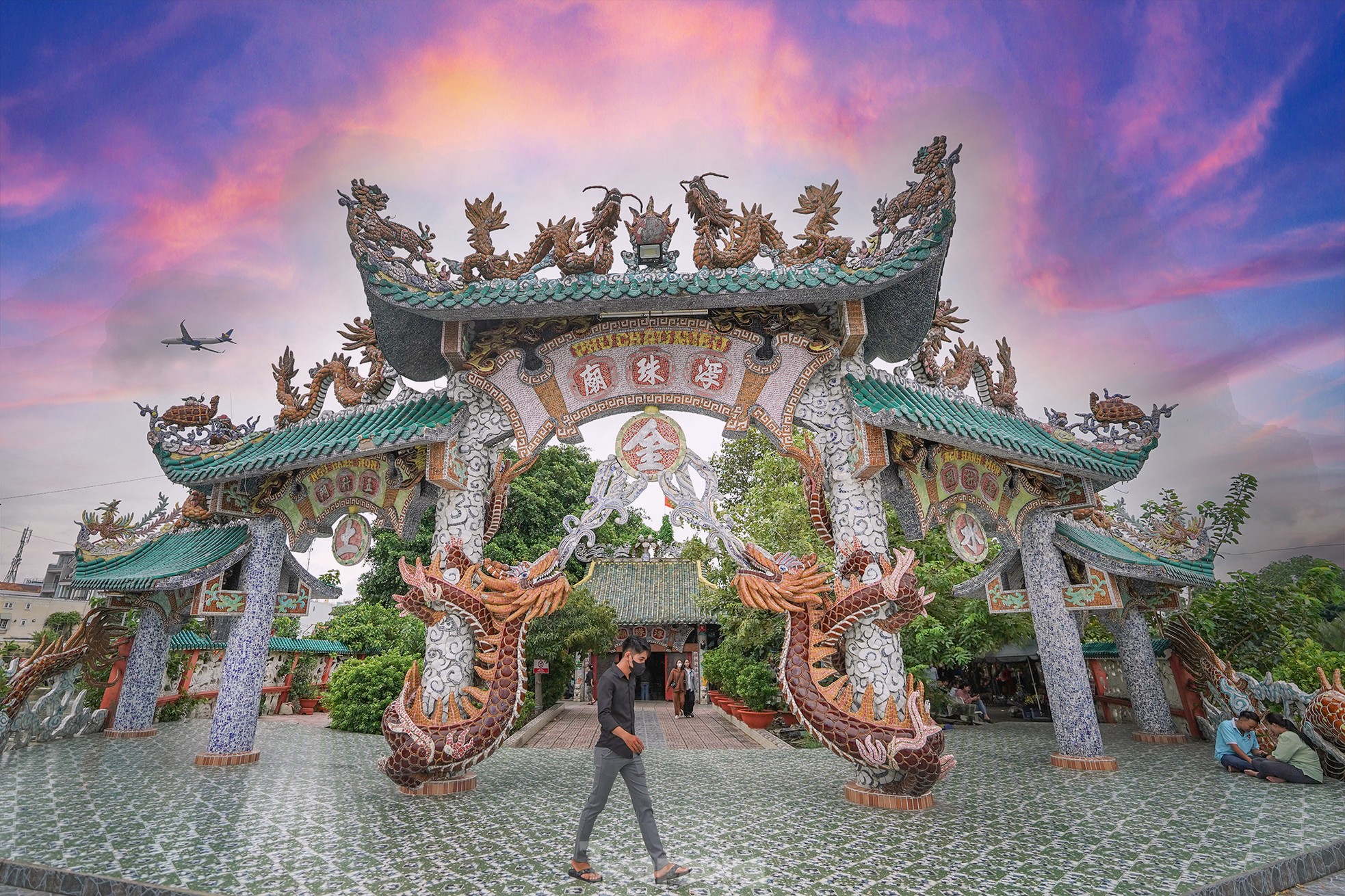
Phu Chau Temple is located on an island floating in the middle of Vam Thuat River, on one side is Go Vap District, on the other is District 12.
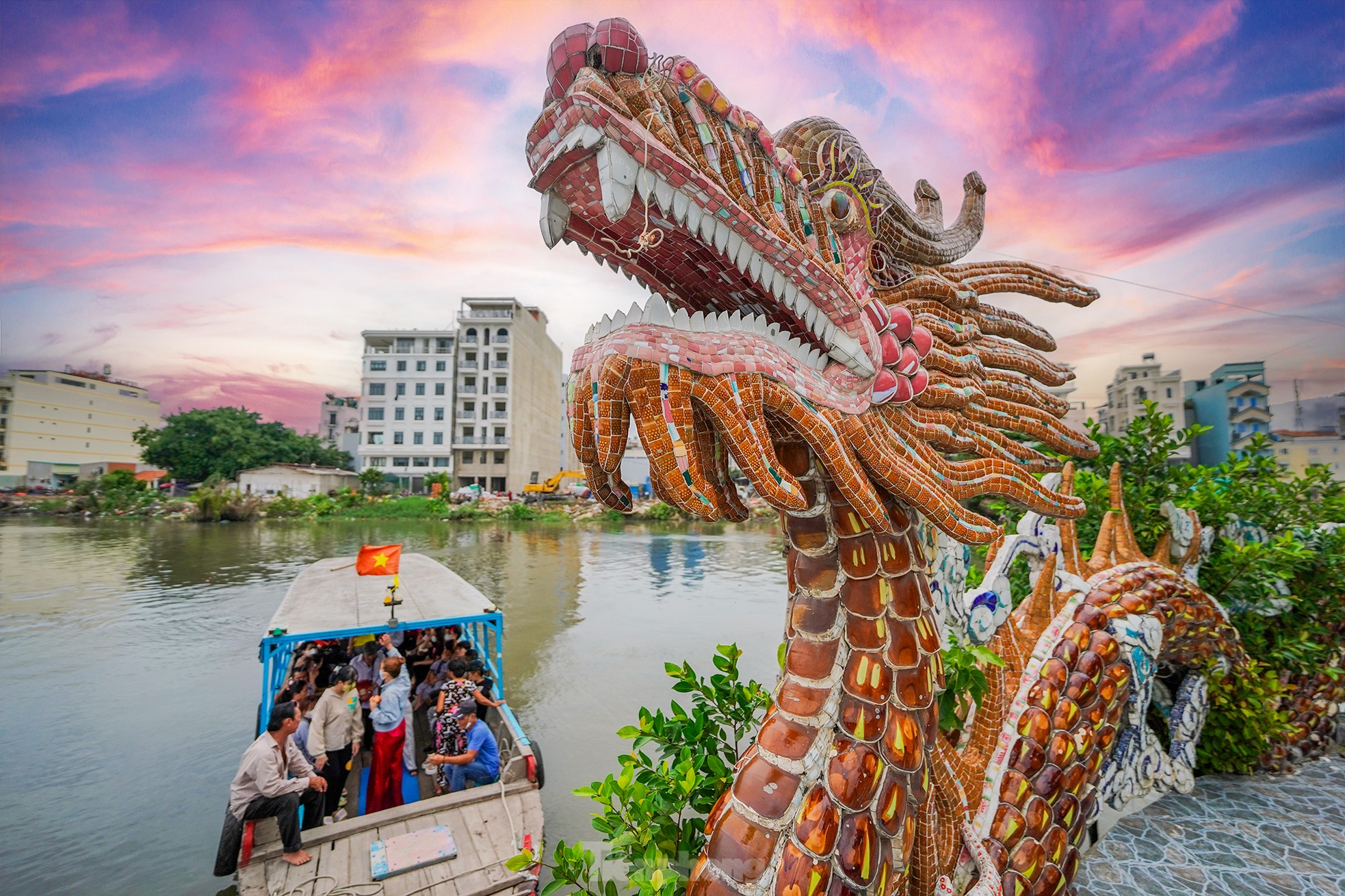
If you want to go to Phu Chau temple, the only way is to take a boat. Each return passenger has to pay the ferryman 15,000 VND.
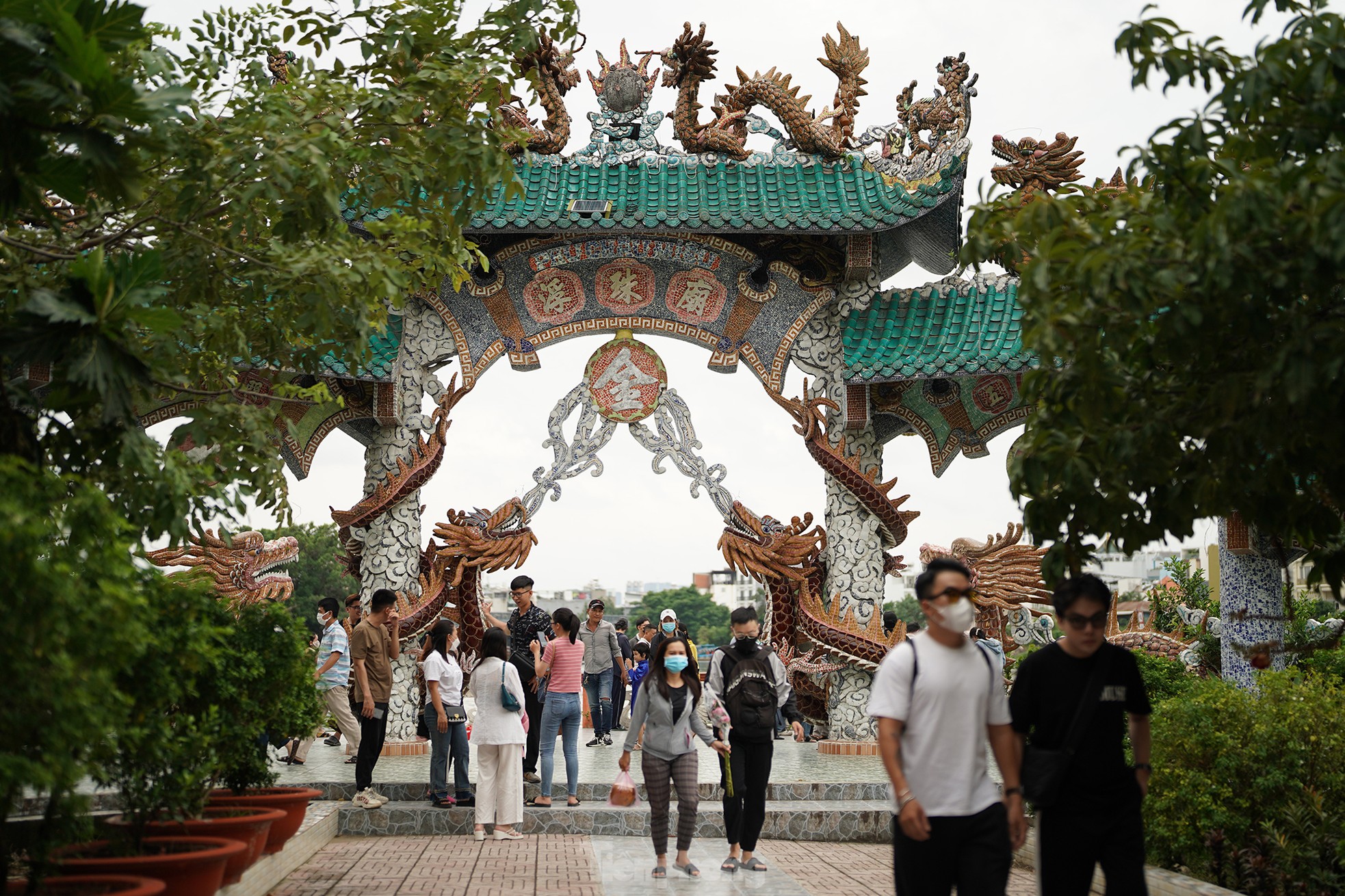
Almost equal to the time when Gia Dinh was formed, the temple has existed for about 300 years. Regarding the origin of ancient temples, there are many stories handed down in folklore
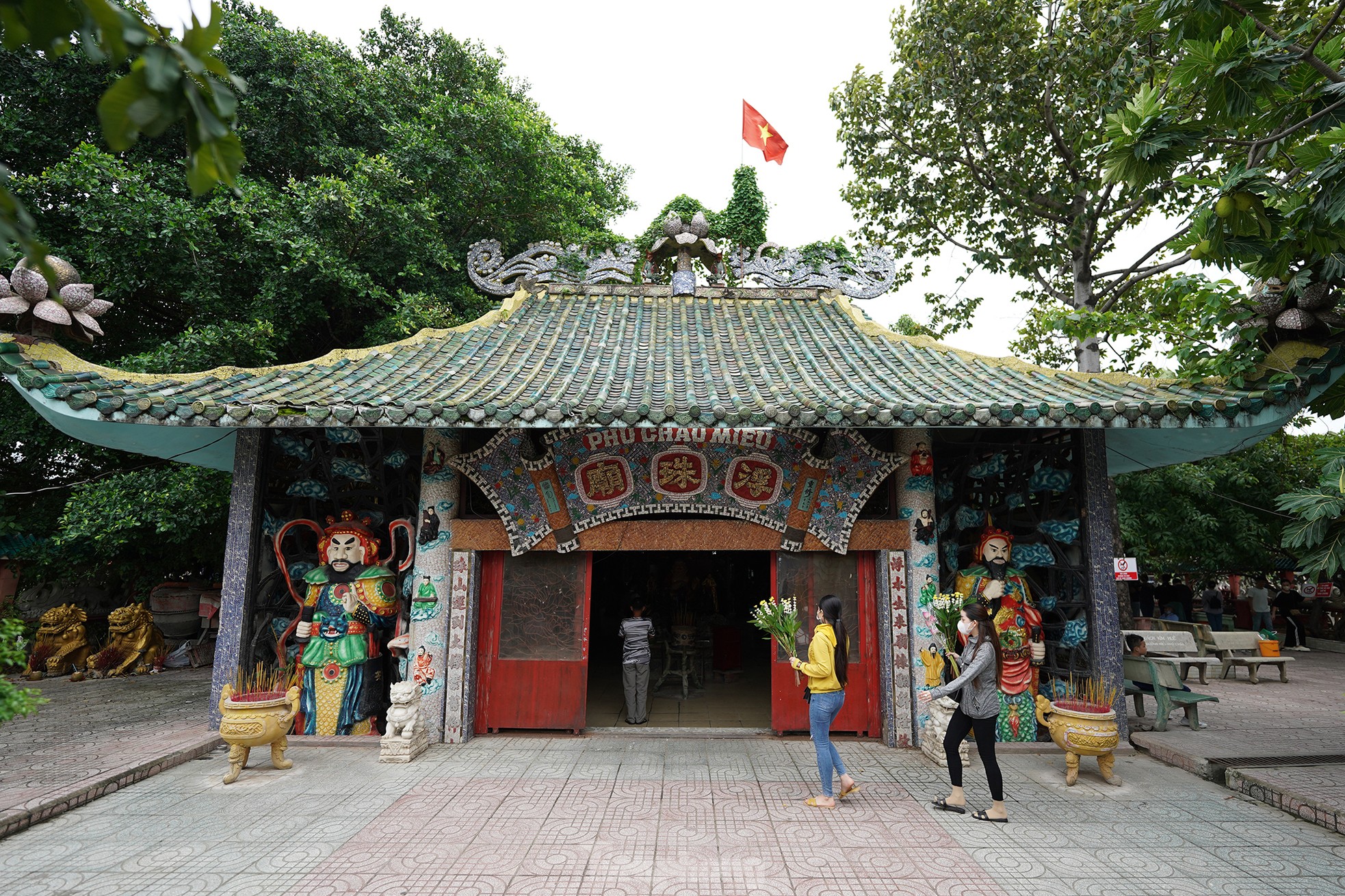
In front of the main hall. The façade of Phu Chau Mieu, facing south, is built in the form of a triangle consisting of three buildings connected by two narrow courtyards with roofs. The roof is covered with yin and yang tiles with turquoise glaze, consisting of two overlapping floors. On the roof of each building is decorated with dragons adoring pearls, dragons adoring the tower of Nine products, dragons adoring scrolls. On the four curved blades, there are images of Long, Ly, Quy, Phung and motifs: chrysanthemum flower, grape leaves, river... The walls are whitewashed in dark pink, the door edges are painted red.
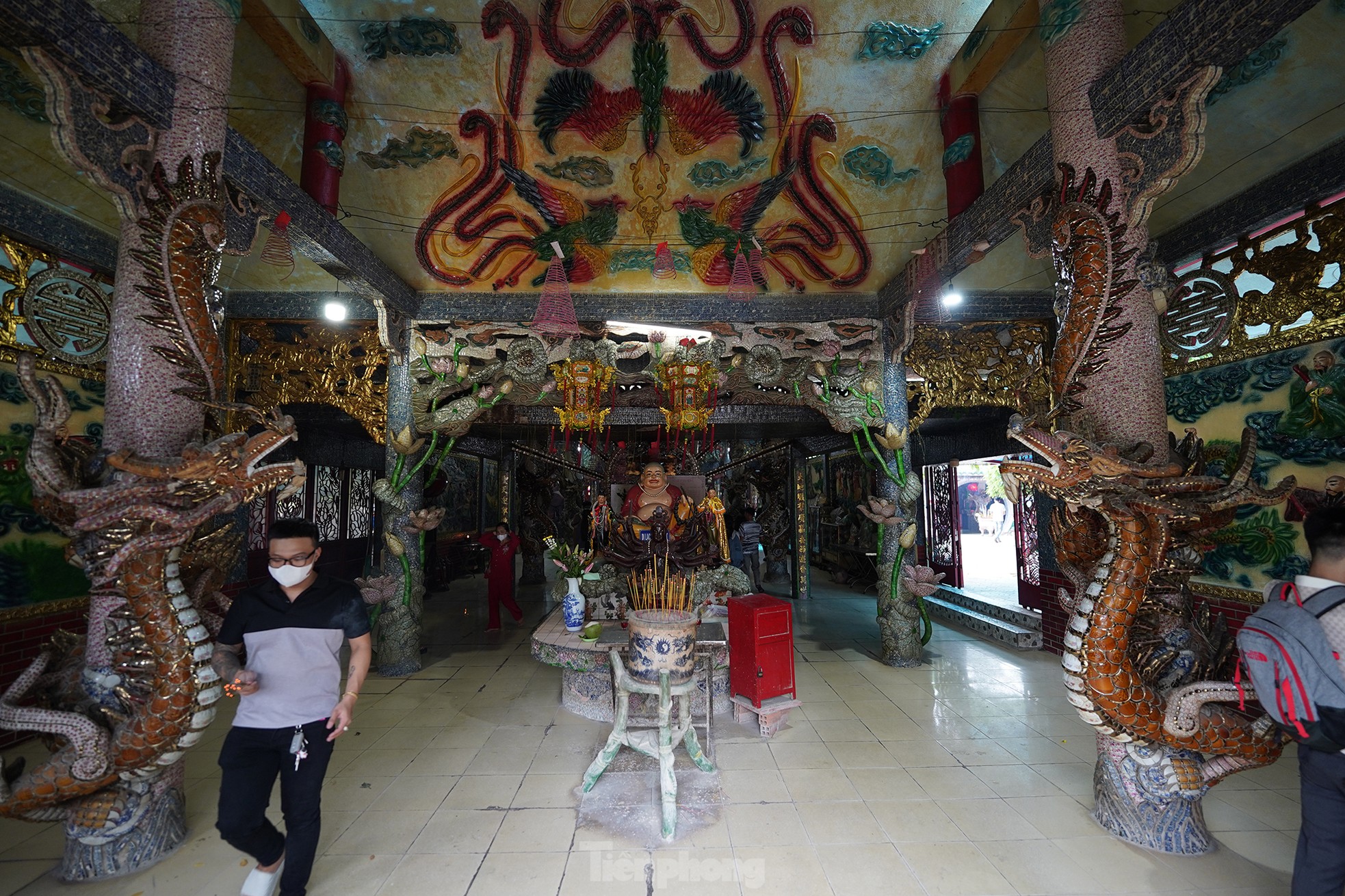
In the middle of the front hall to worship Maitreya Buddha, the two sides worship Buddha Tathagata and Earth Mother. In front is a statue of Quan Am Chuan De sitting on a lotus with 18 arms holding a weapon. Along the wall hang two bas-reliefs of the Eight Arhats.
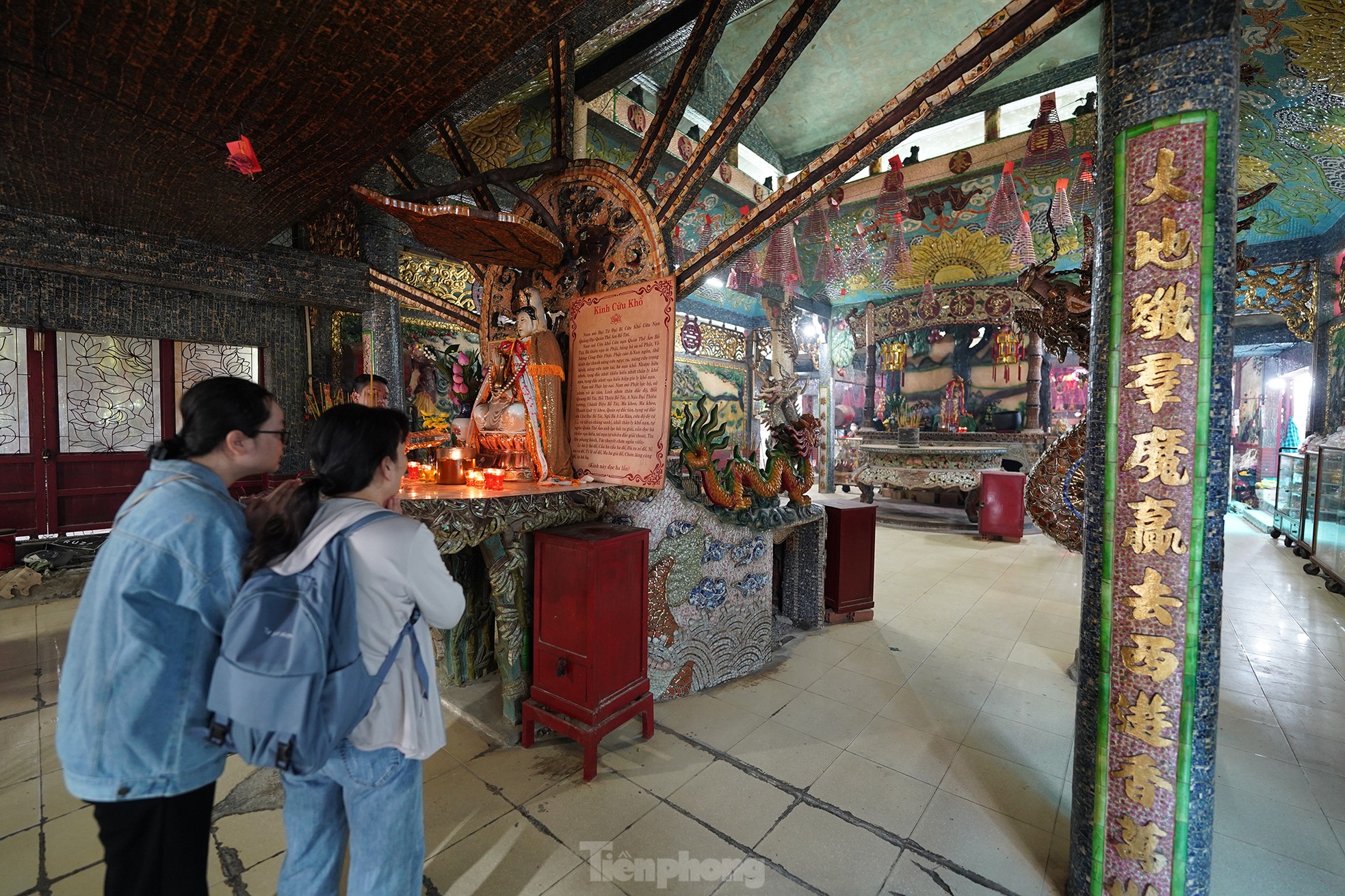
The central hall in the middle worships Te Thien Dai Thanh, Avalokitesvara Bodhisattva. Surrounding is a wooden cover with dragon carving according to the motif: fairies offer peaches with 4 inscriptions on wood: "Holy Gia Bao Dien".
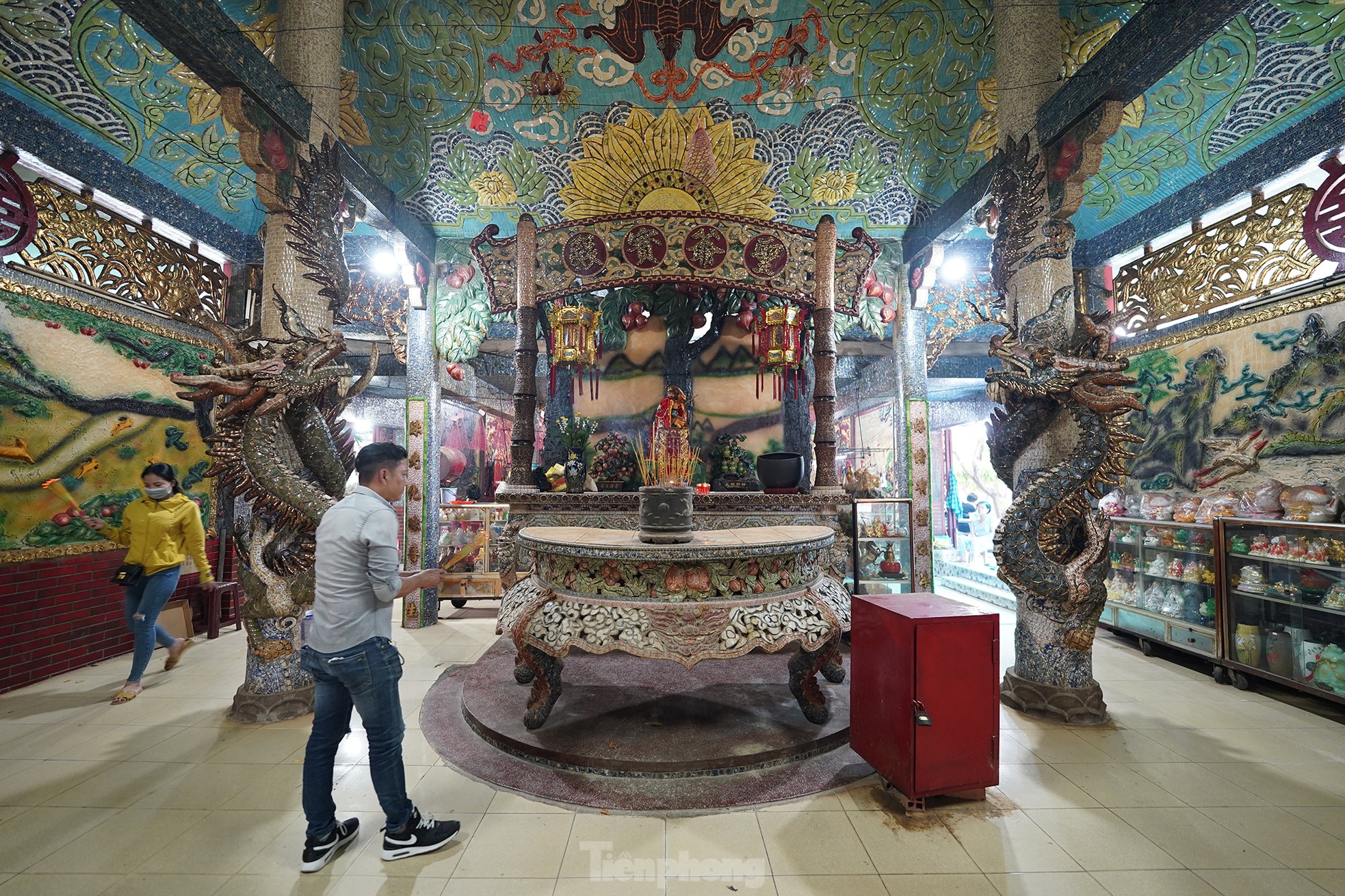
The shrine area is splendidly decorated with porcelain motifs.
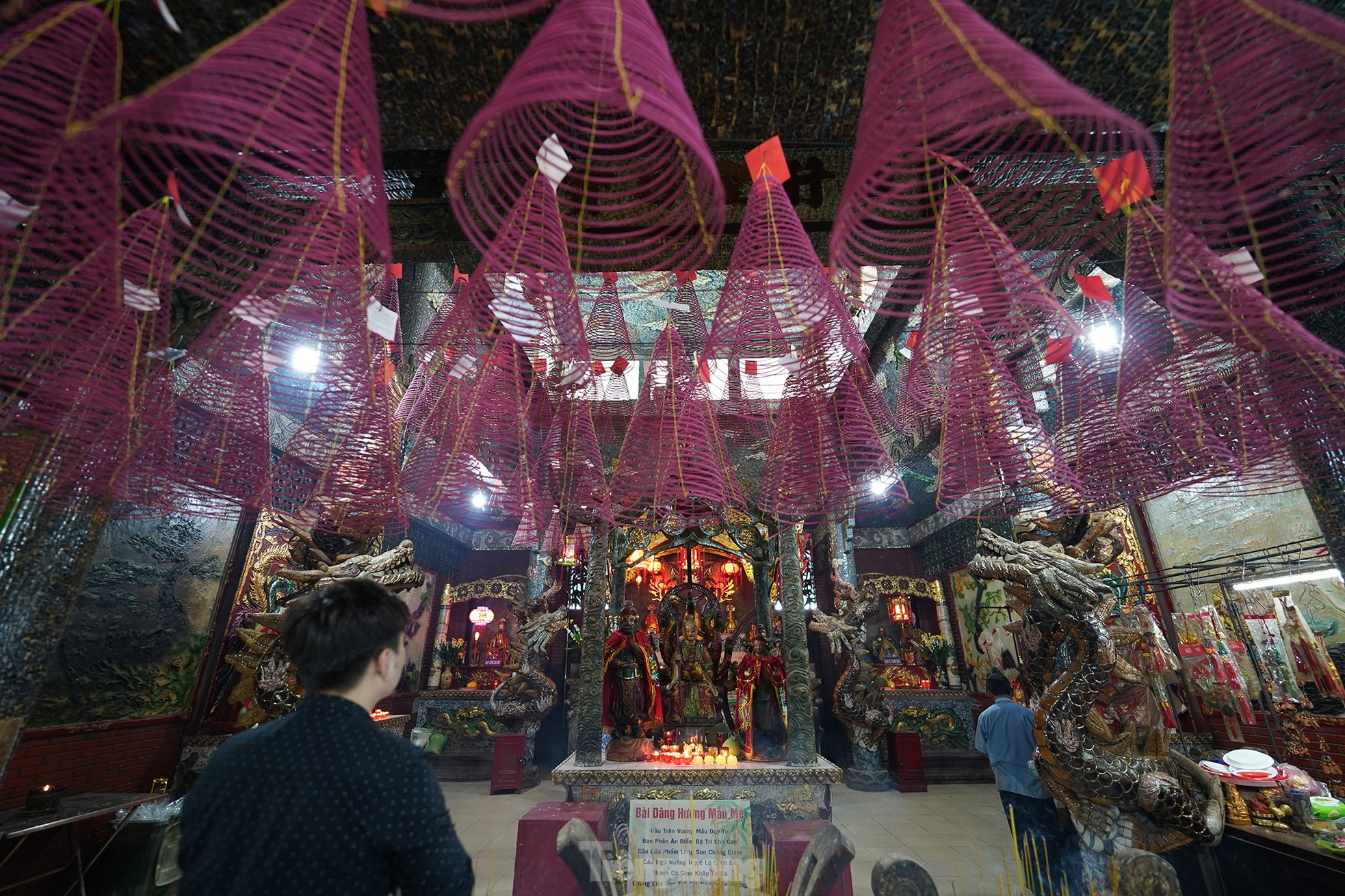
The main hall is dedicated to Ngu Hanh Thanh Mau, inside there are five wooden statues of the five elements. In front of the shrine, there is an incense altar to worship Ba Chua Xu Chau Doc and Cuu Huyen. Around the shrine is a wooden cover with carved dragons with the theme: four spirits, apricot blossom, chrysanthemum; Above, there is a line of words: "Hanh Thanh Mau Bao Dien". On the right side of the main shrine is Quan Cong, on the left is Bao Cong. Opposite the shrine of Ngu Hanh Thanh Mau is the shrine of Kim Mau, Dia Mau, Long Than, and Protector. On the walls are decorated with colorful reliefs of pine cranes and Maitreya Buddha.
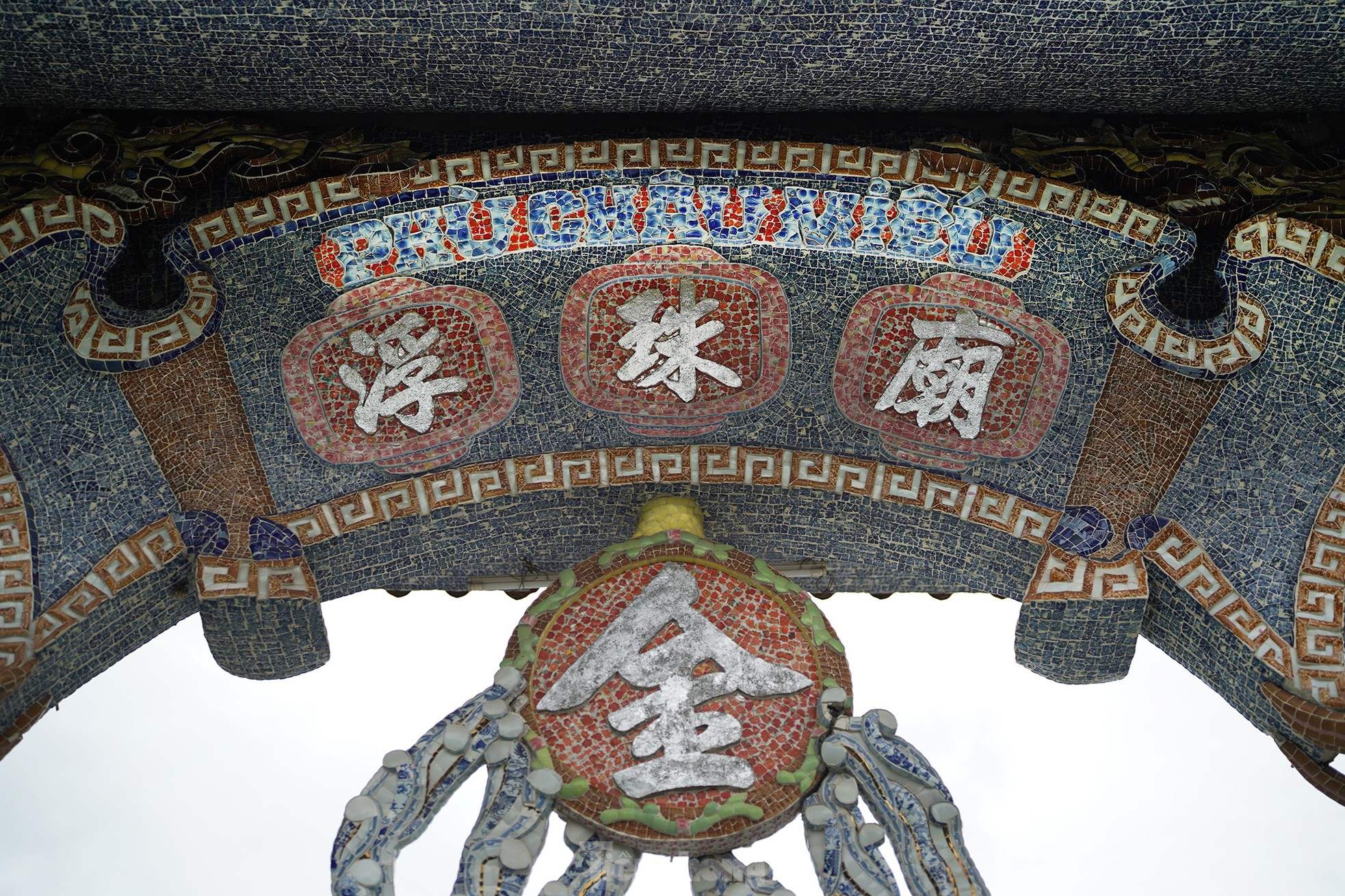
Phu Chau temple has a very unique decoration from pieces of porcelain and porcelain.
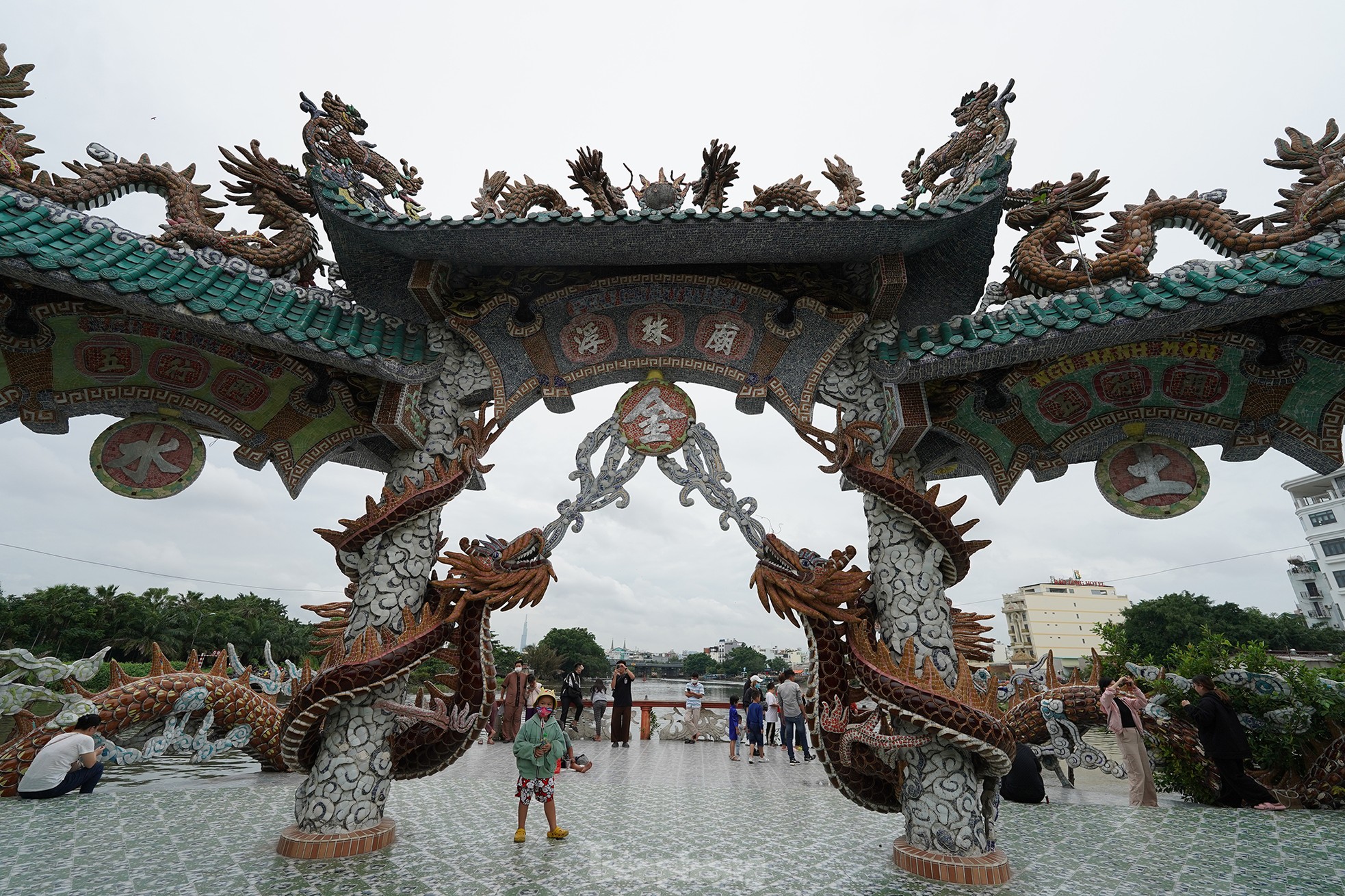
Textures of crockery almost cover the works in the temple grounds. The temple has an area of about 550 square meters and is built almost entirely on a small foot-shaped dune with an area of about 2500 square meters floating in the middle of the Vam Thuat river. At the foot of the dune, there are many convex green rocks around. Due to the special terrain, it is also known as the Noi Temple. Guests who want to go to Mieu Noi must go by boat. Sitting on the boat, you can admire the beautiful scenery at the very poetic Ho Chi Minh City Floating Temple.
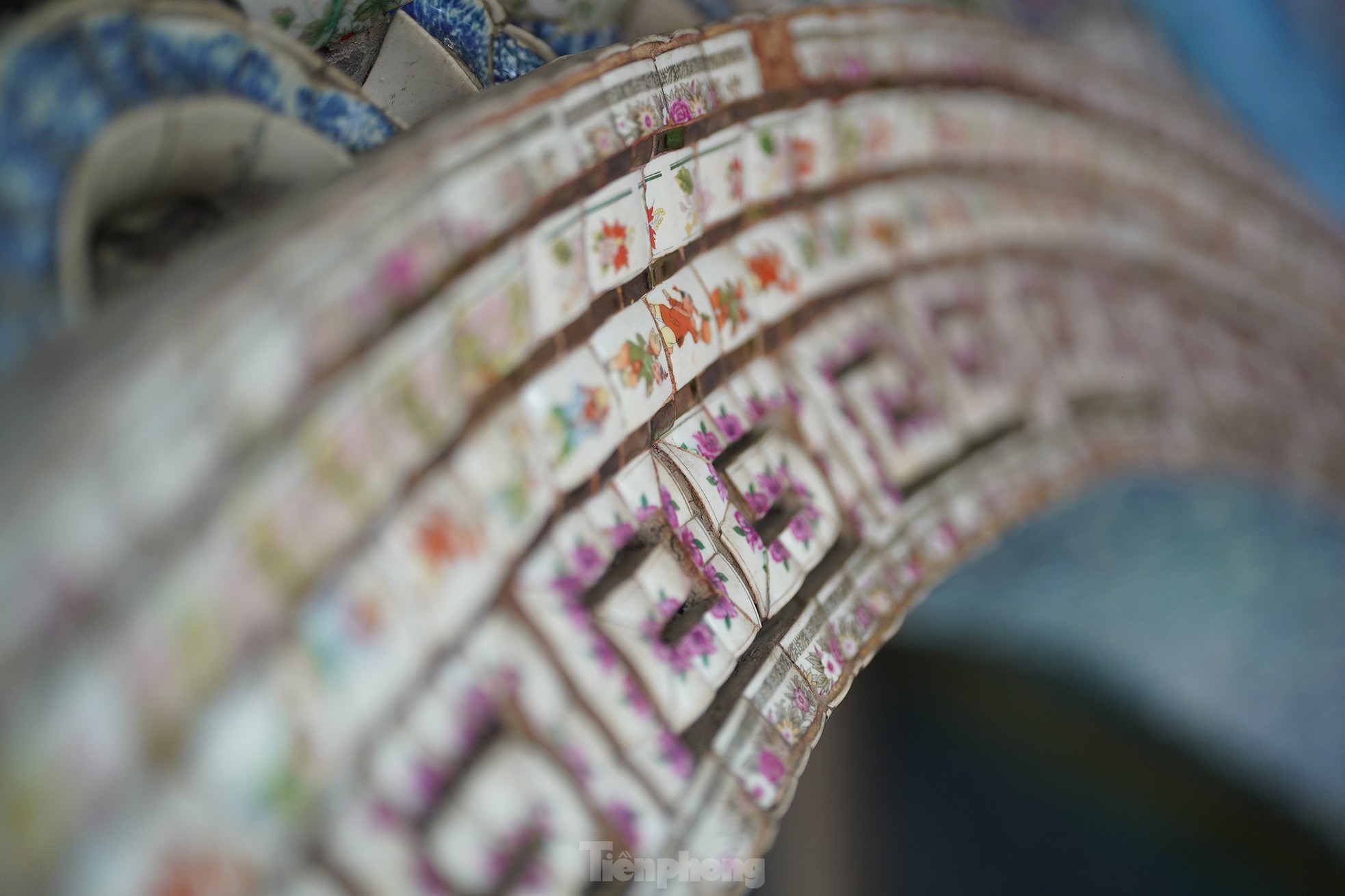
Talking about porcelain textures, many items are elaborately decorated, meticulously, with ideas. In this section of the arch, if you are observant, you can see thousands of pieces of porcelain that are selected, cut according to the idea, not randomly assembled broken pieces of porcelain and porcelain.
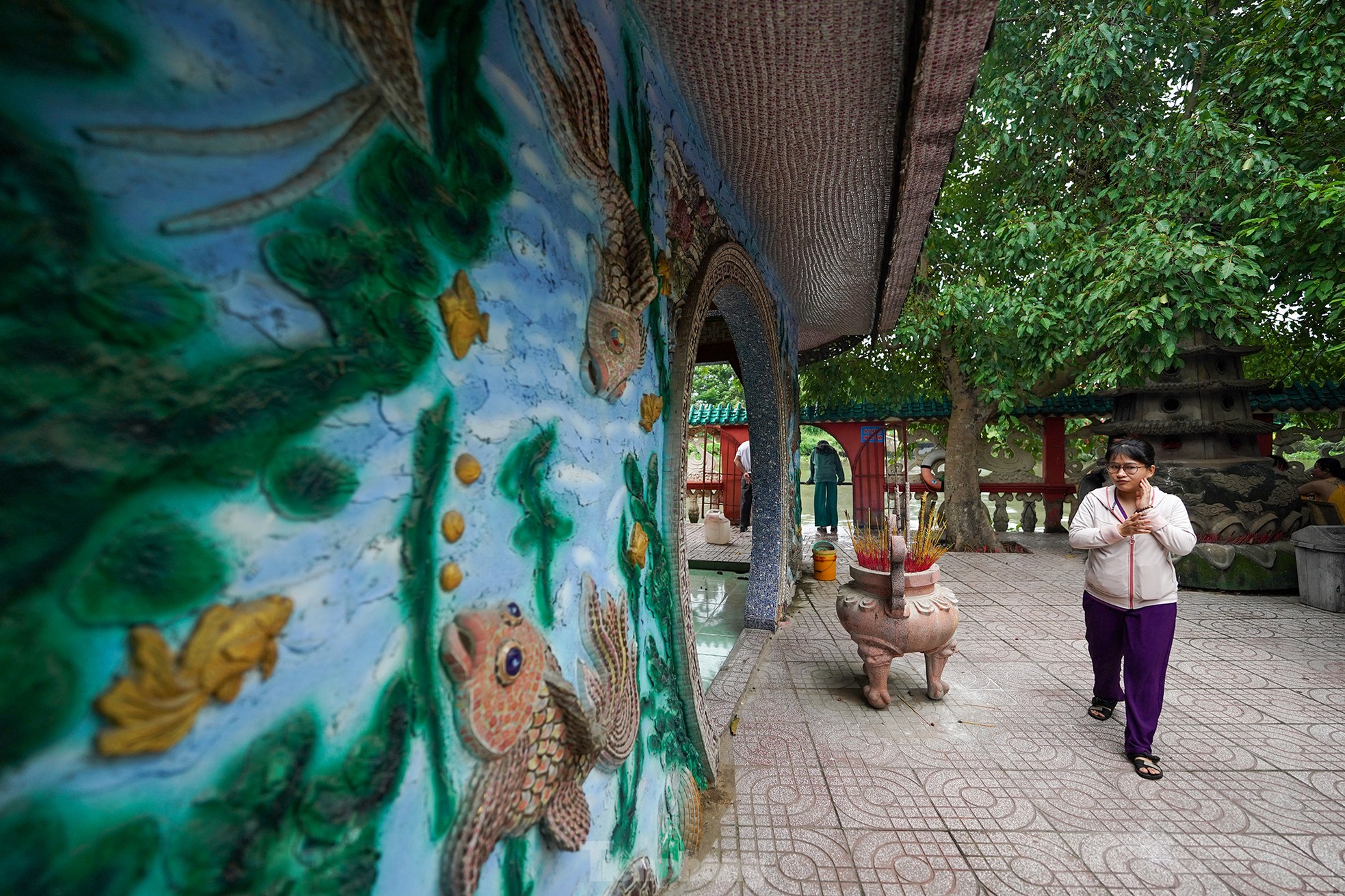
Some items combine harmoniously between embossed and decorated with porcelain.
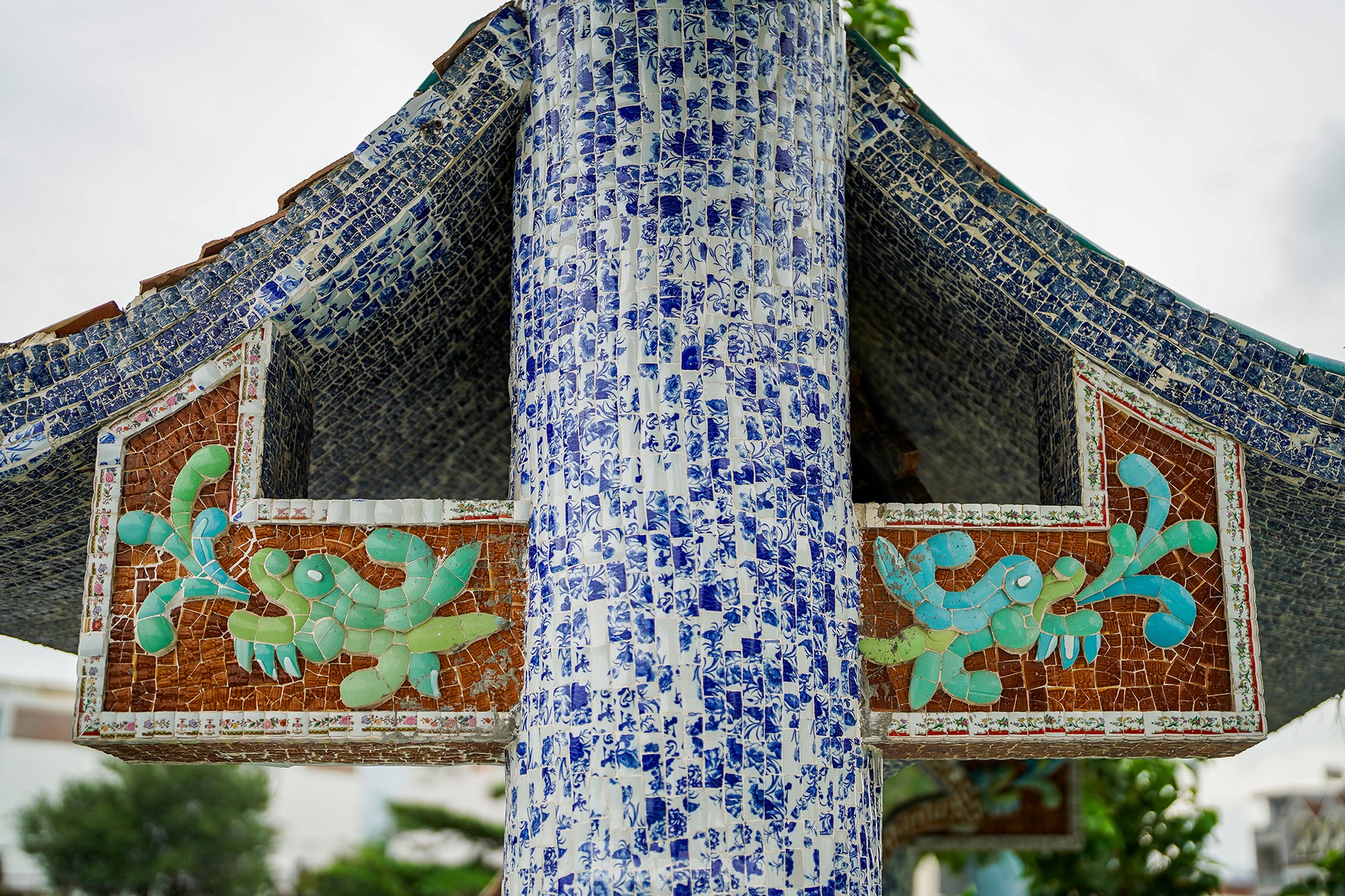
One corner of the main gate is covered with pieces of crockery and porcelain.
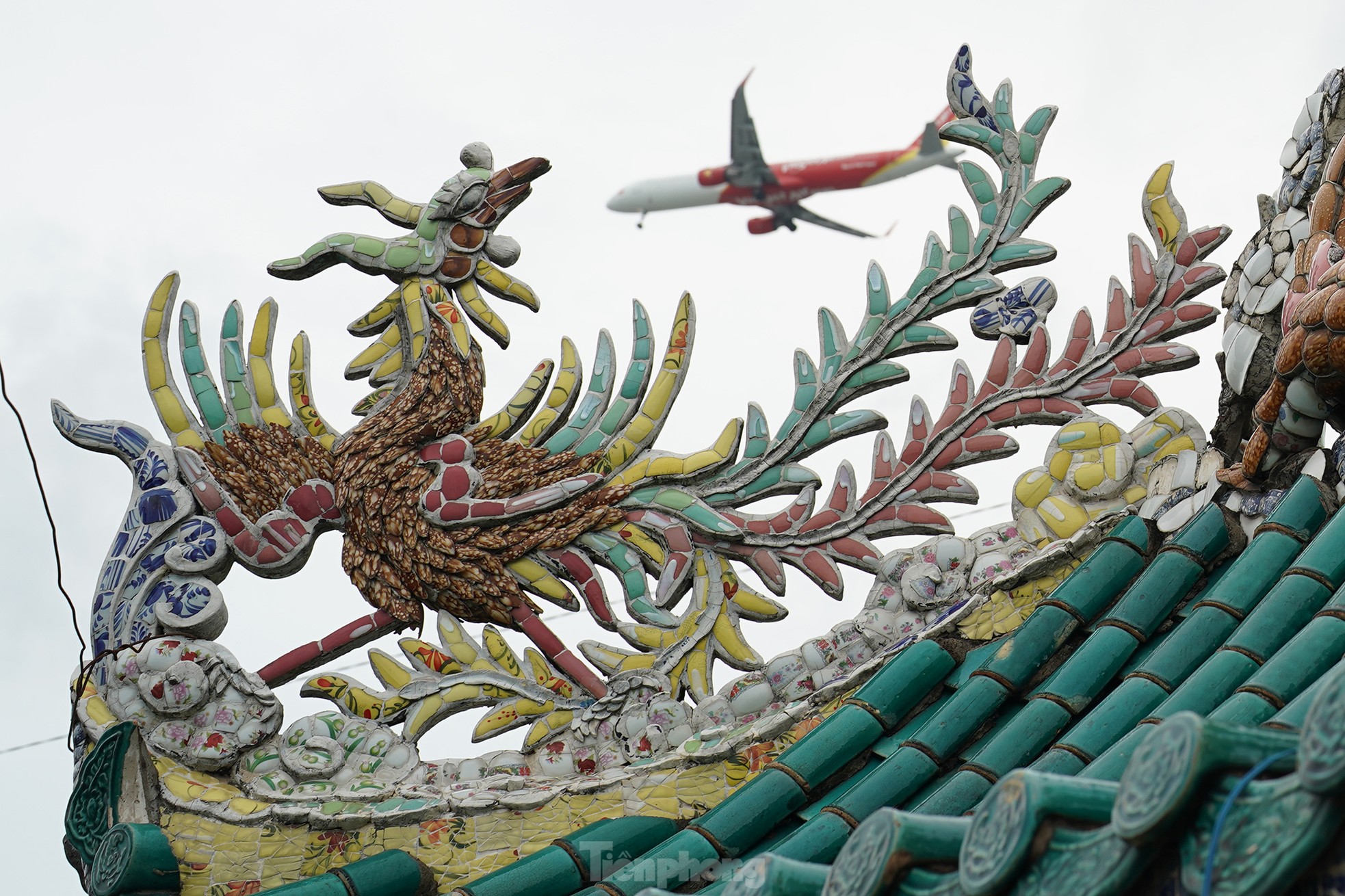
In spiritual works, it is common to see curved noses, the roof is often decorated with dragons, this temple has an image of a phoenix and is covered with crockery and porcelain.
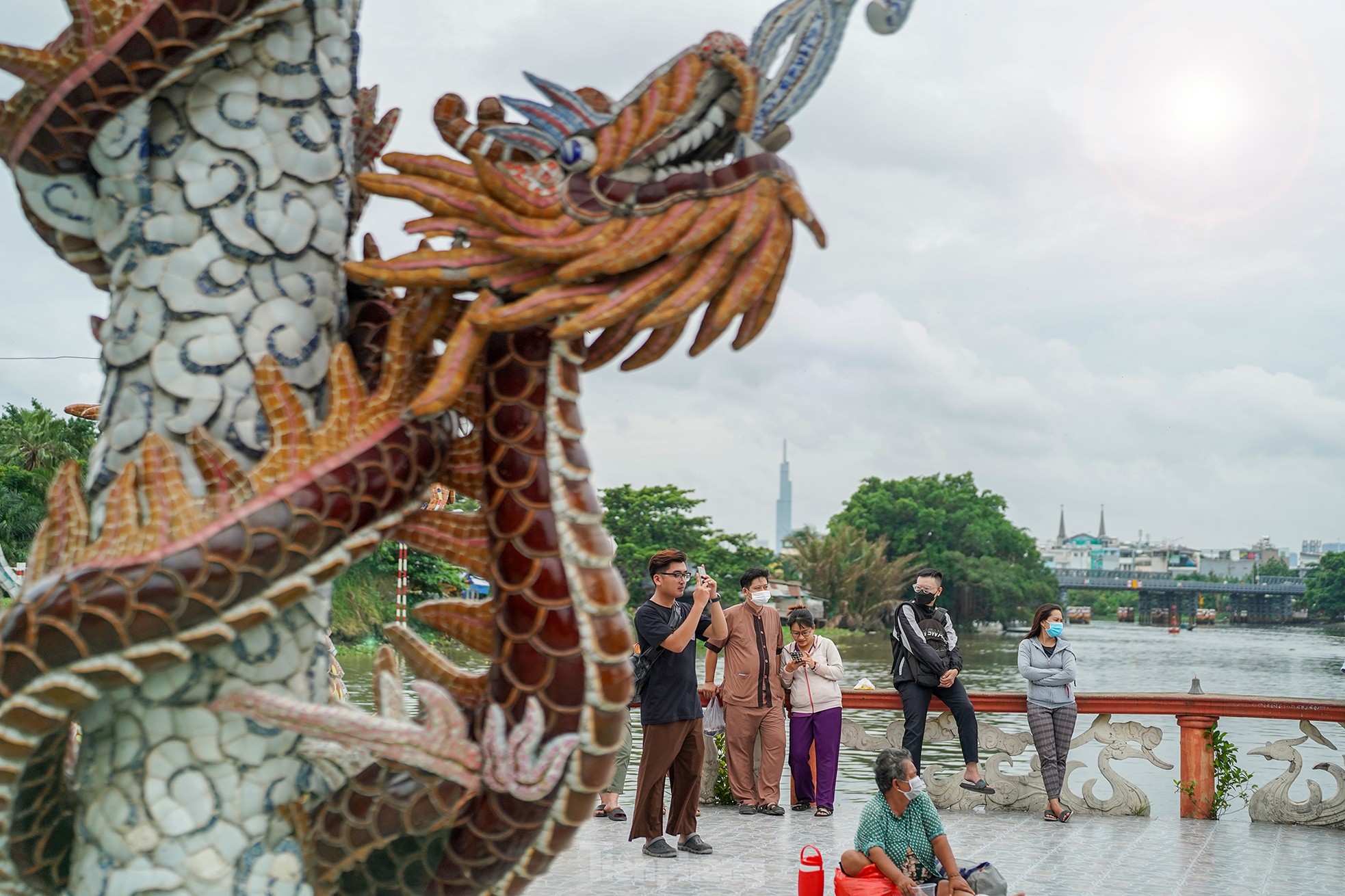
Floating temple in Ho Chi Minh City or Phu Chau Mieu is a place of worship and sacredness of Saigon people. The floating shrine in Ho Chi Minh City has become a very famous spiritual tourist destination. In addition, the beautiful scenery at Mieu Noi is also a very popular tourist destination for young people.
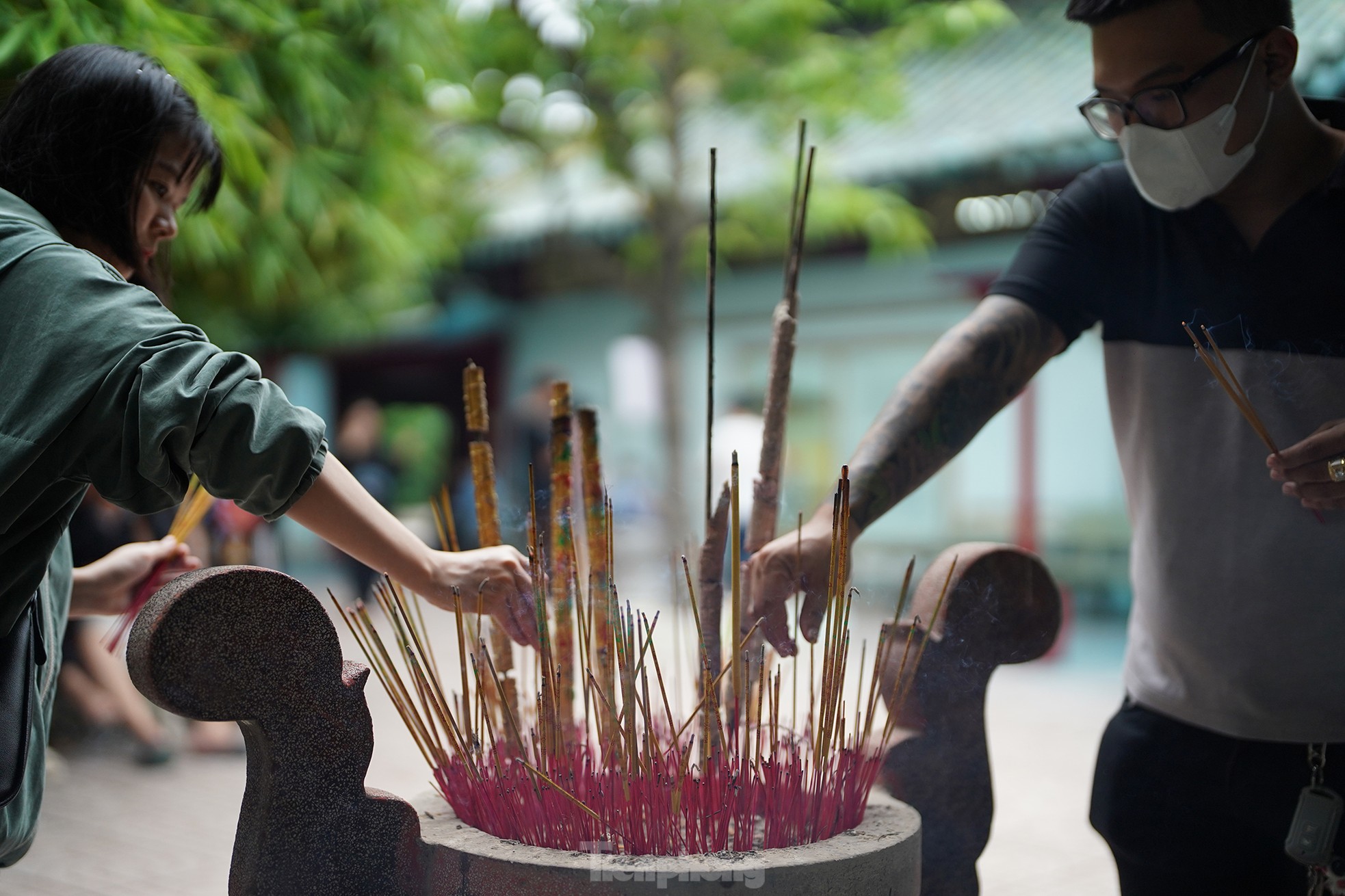
Whether it's a weekday or a weekend, the temple welcomes quite a few pilgrims.
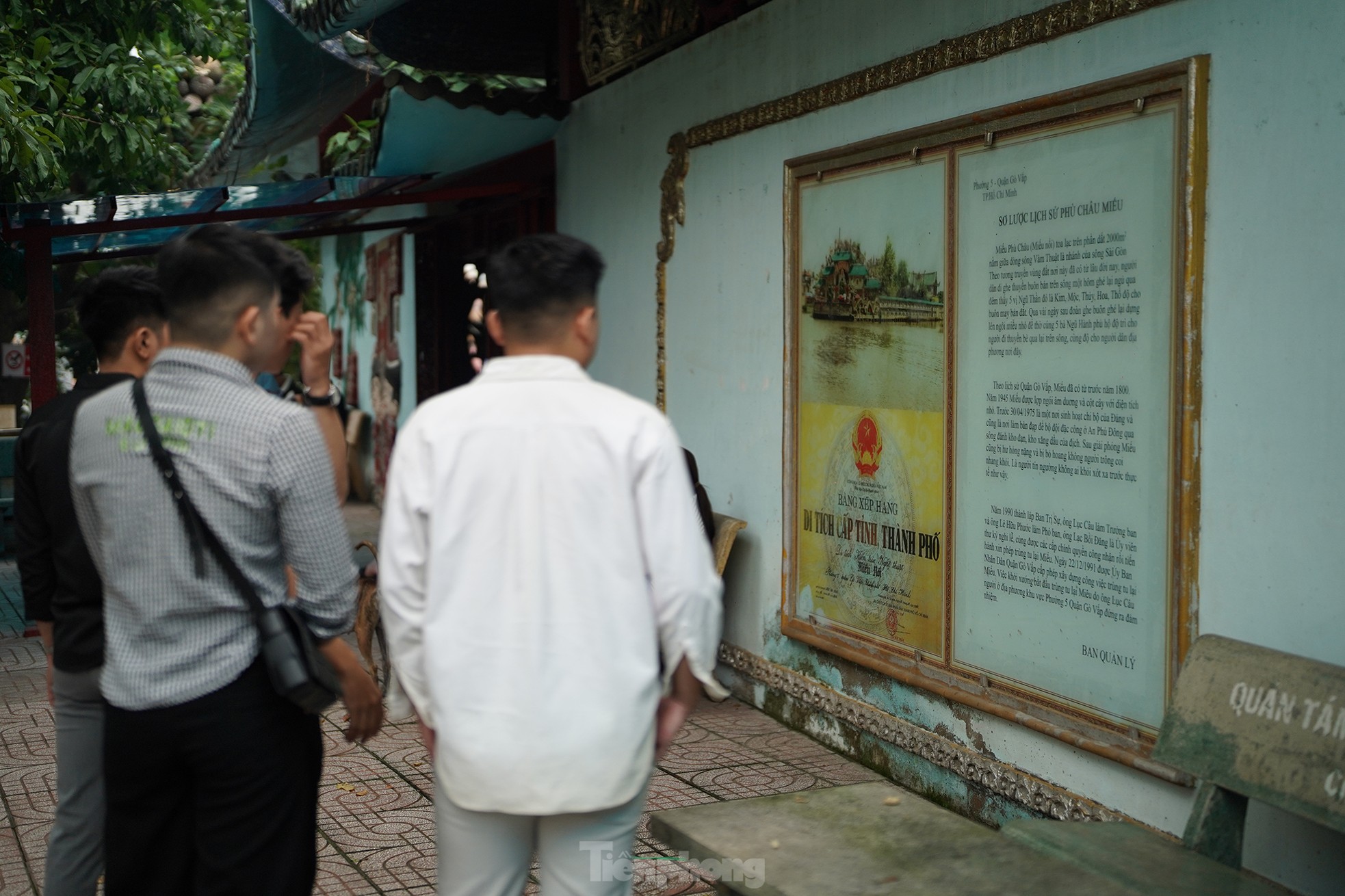
Visitors are learning about the temple which is ranked as a provincial-level relic.
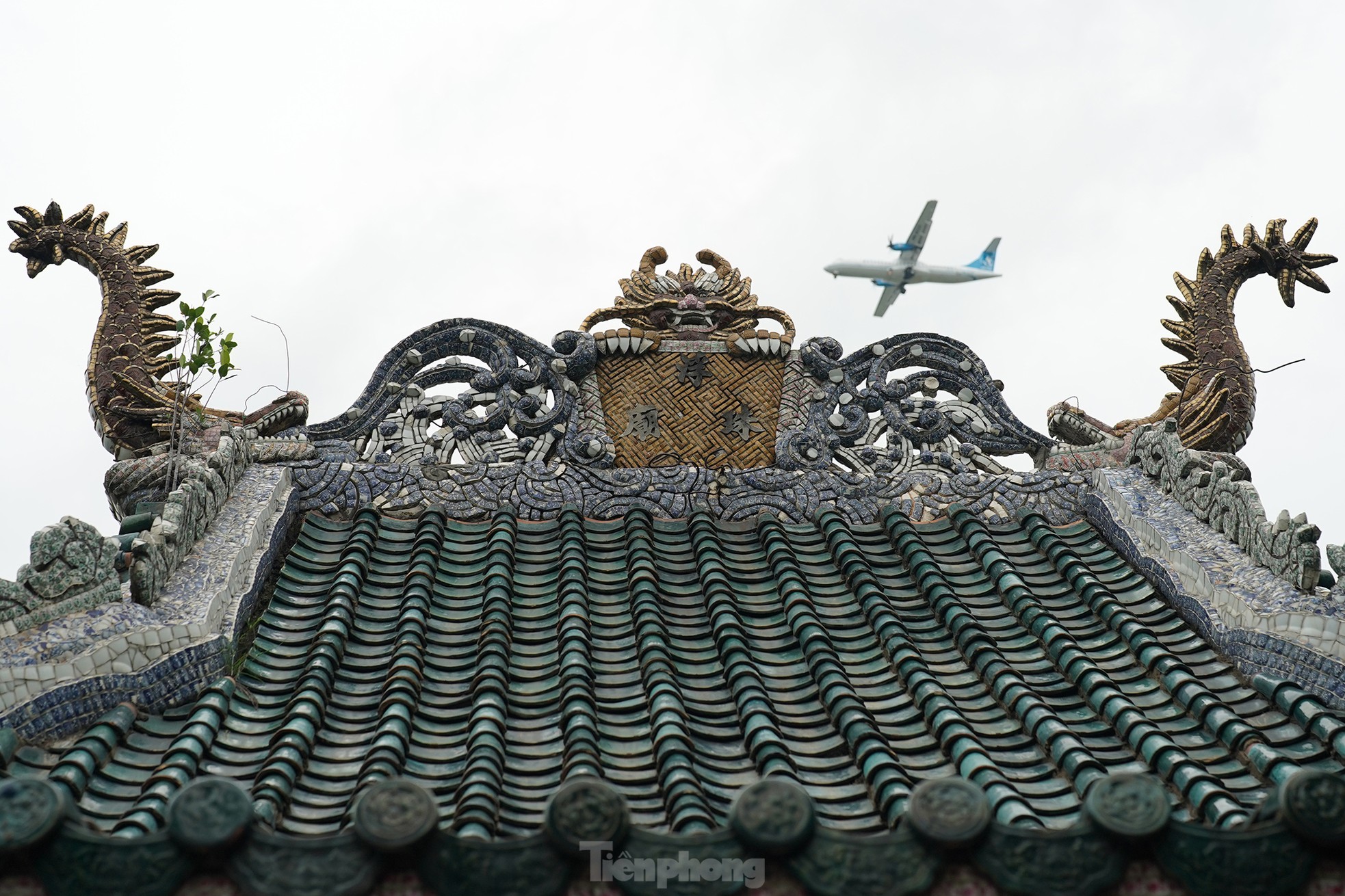
Temple of Phu Chau has a unique architecture imbued with Vietnamese - Chinese culture, consisting of three buildings connected by two courtyards. The roof is covered with jade glazed yin and yang tiles, looking down from the top, the outside looks full of dragons. On the roofs of the shrines and main gates are statues of dragons adoring in the form of two dragons in battle, dragons adoring at the Cuu product tower, dragons admiring scrolls, etc. The temple hall also has two large dragons covered with porcelain, according to the "two dragons hi water" posture. .
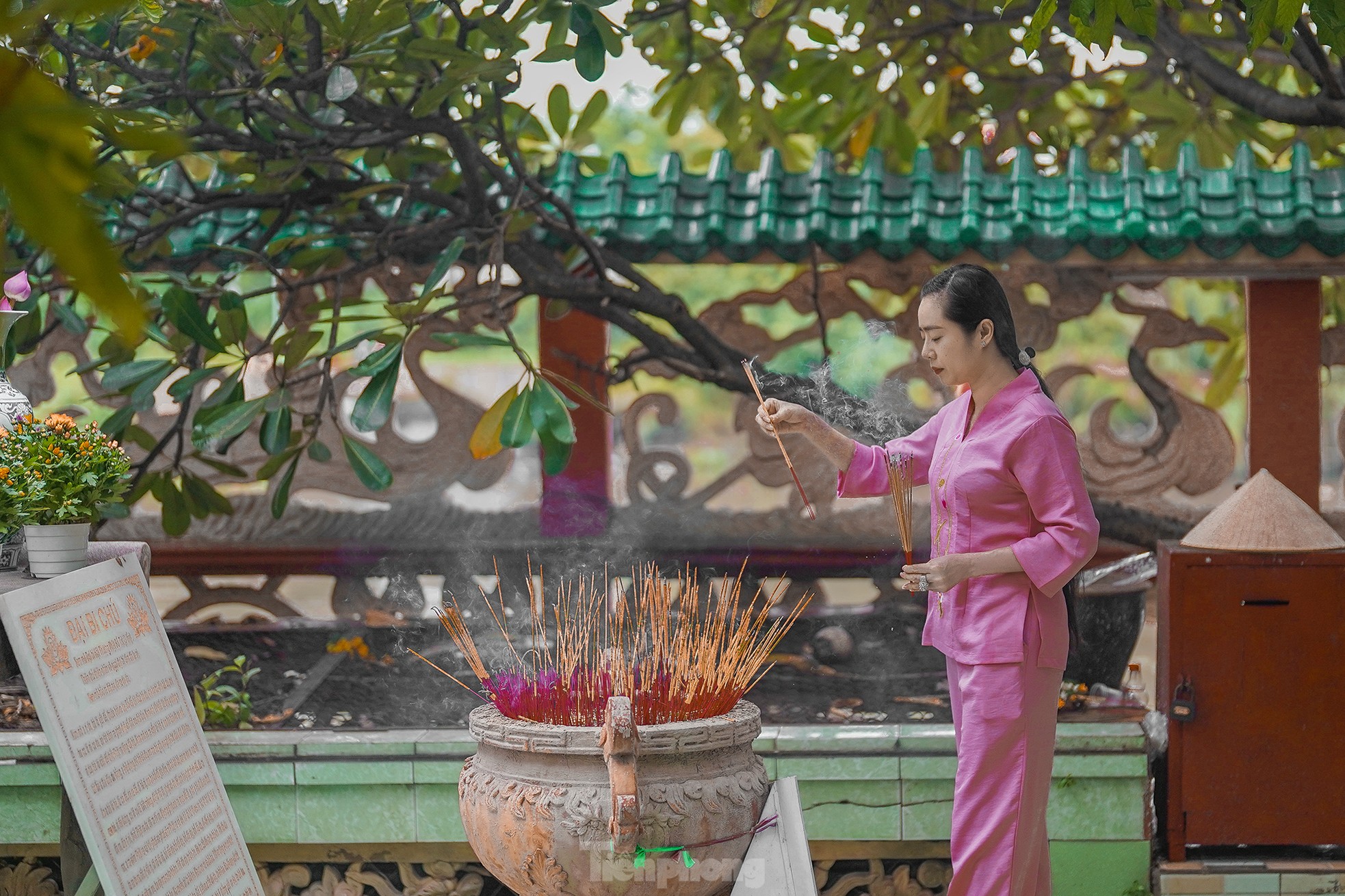
Hong Ni is a devout Buddhist who often comes to Buddha and worships.
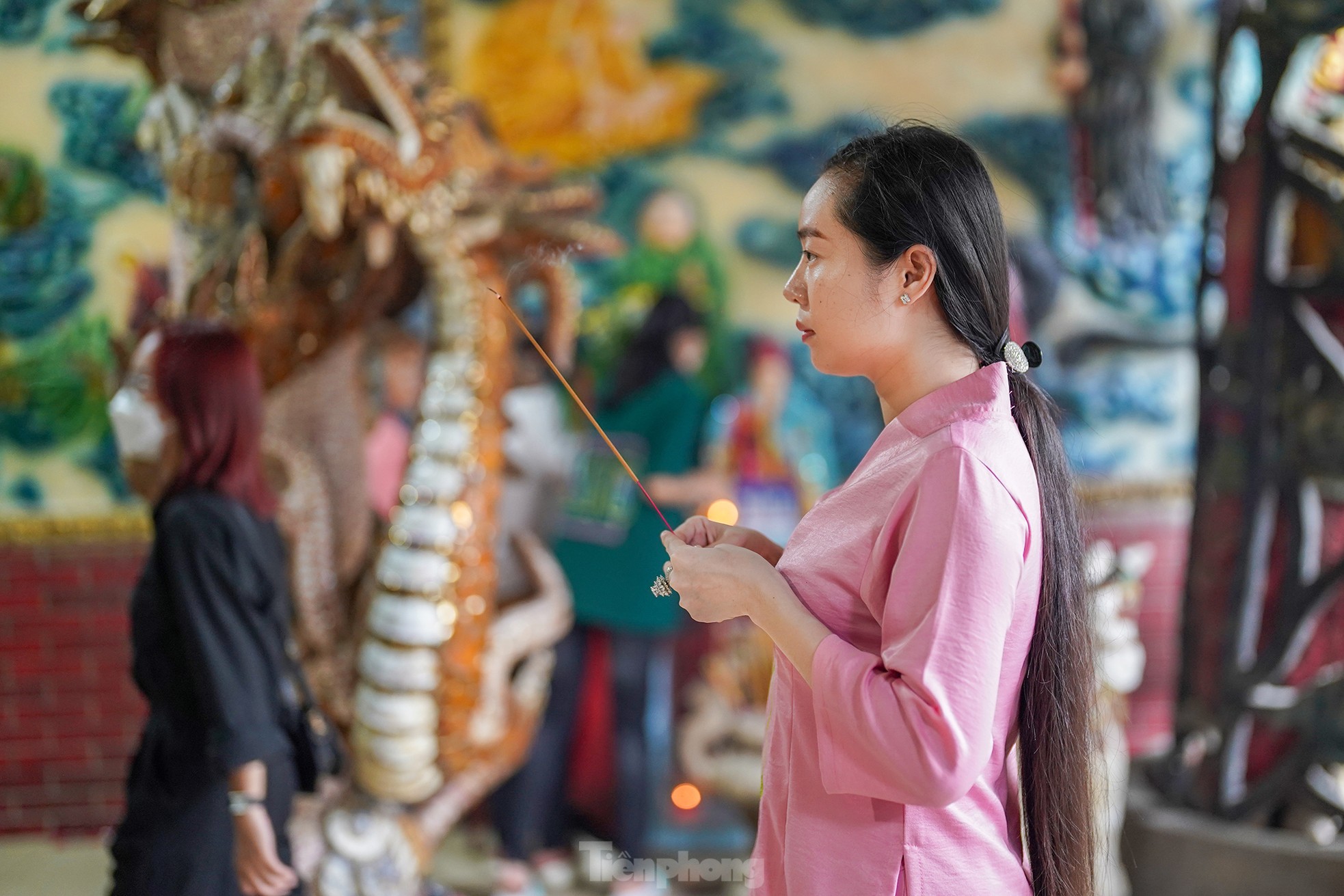
"I often come here when I have time to pray for the well-being of myself and everyone. I often go here and some other temples in the city," said friend Nguyen Thi Hong Ni (living in District 1, Ho Chi Minh City). ) share.
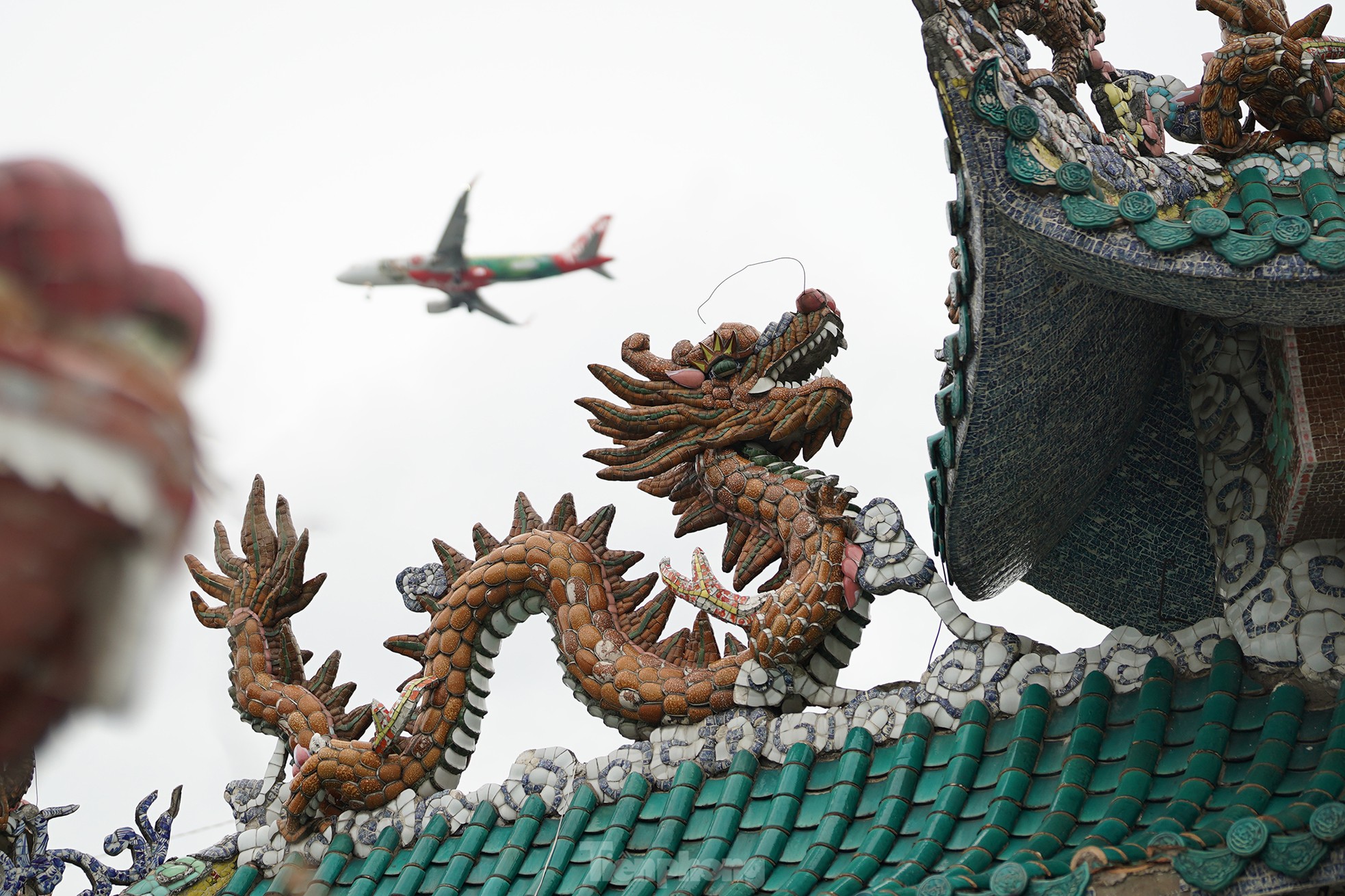
The temple is located right on the way to take off and land at Tan Son Nhat airport, so it will be interesting for those who like to watch planes.
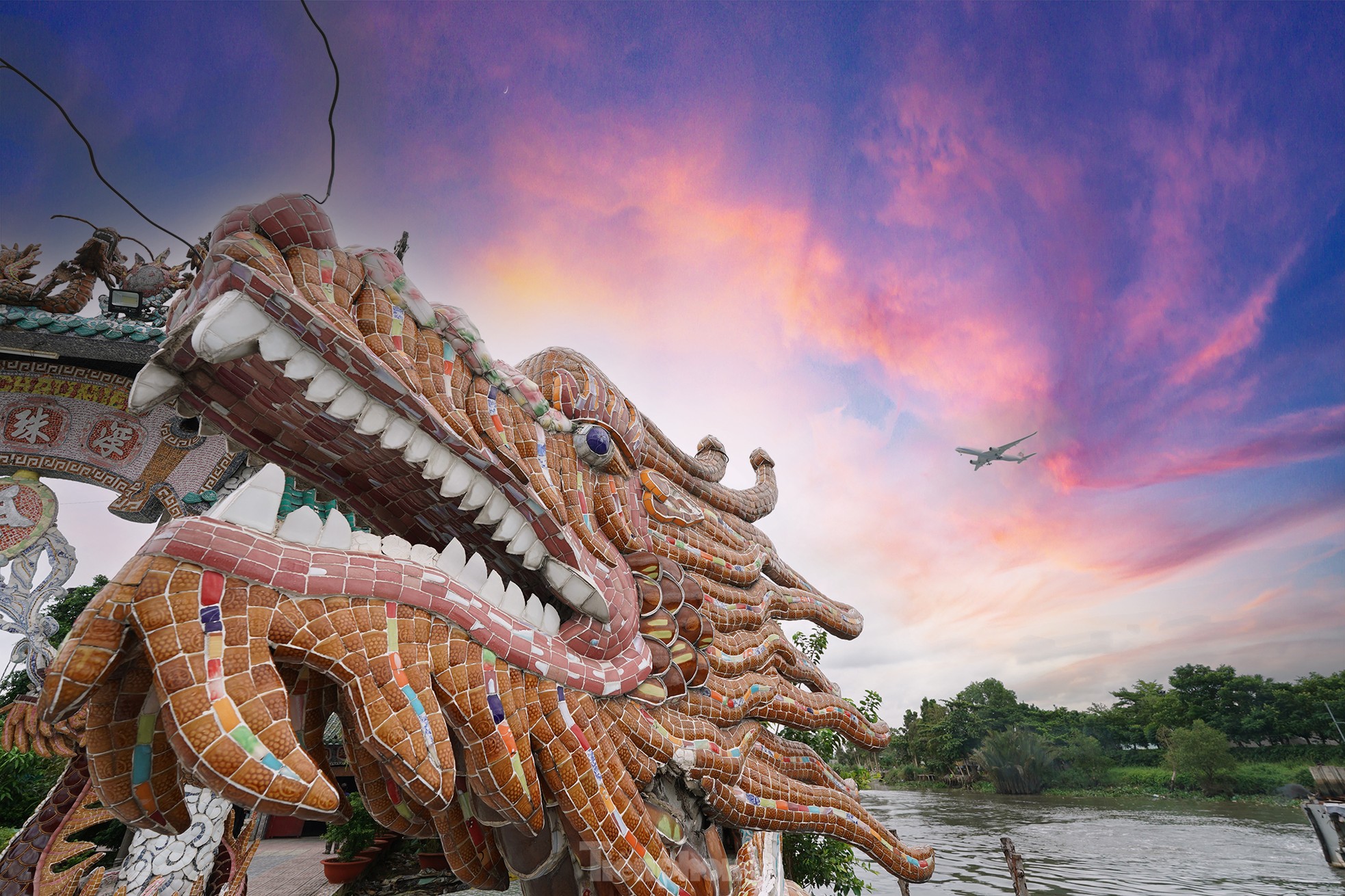
Sunset at Phu Chau temple. In the temple, there are many reliefs of dragons, it is estimated that there are more than 100 large and small dragons, covered with eye-catching colorful porcelain pieces. In addition, the images of Long, Ly, Quy, Phung and motifs of chrysanthemum flowers, grape leaves, river... are also meticulously designed, decorated delicately and vividly on many textures of Floating Temple.
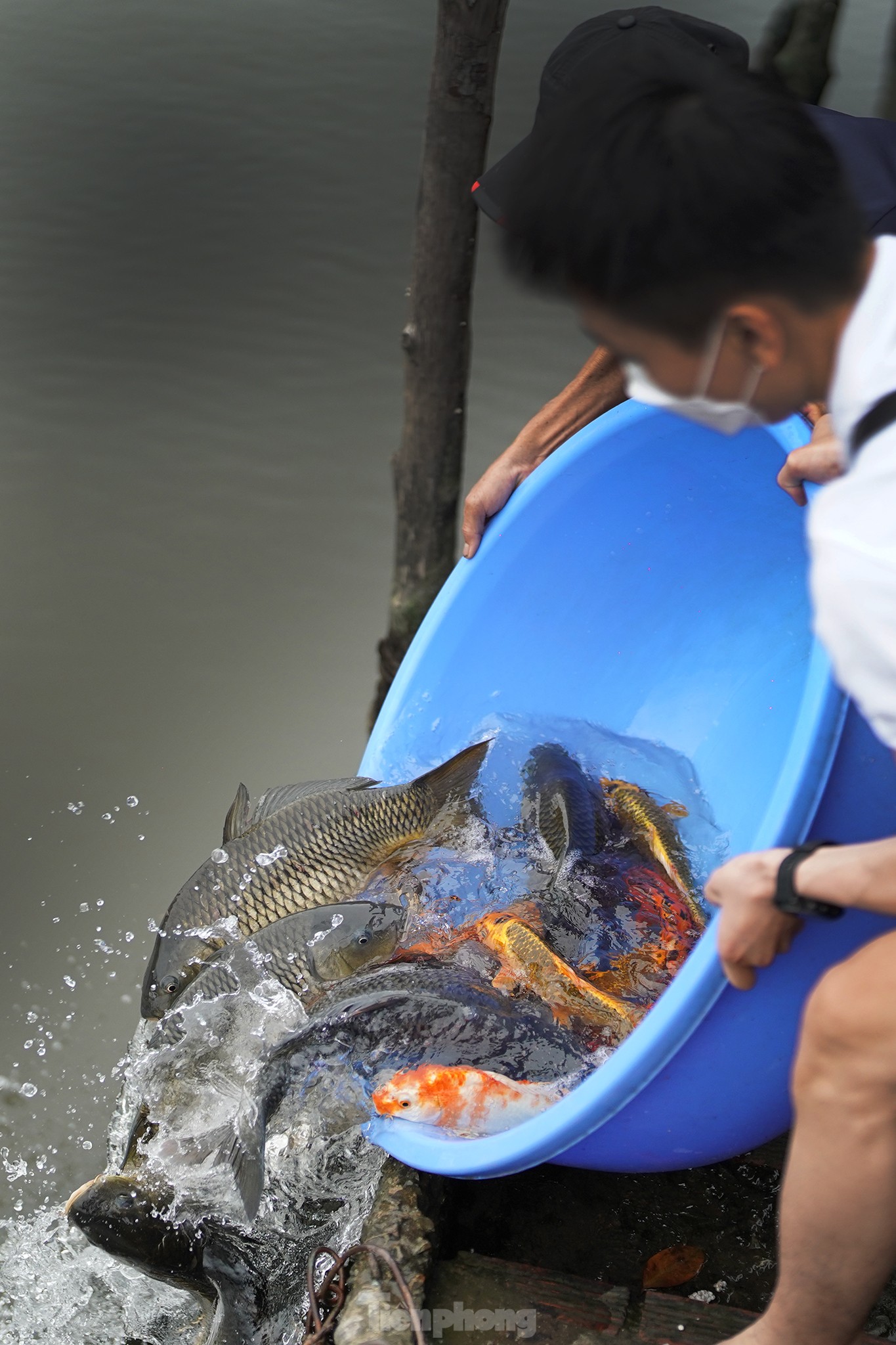
Because it is located in the middle of Vam Thuat River, many Buddhists often come here to release and pray
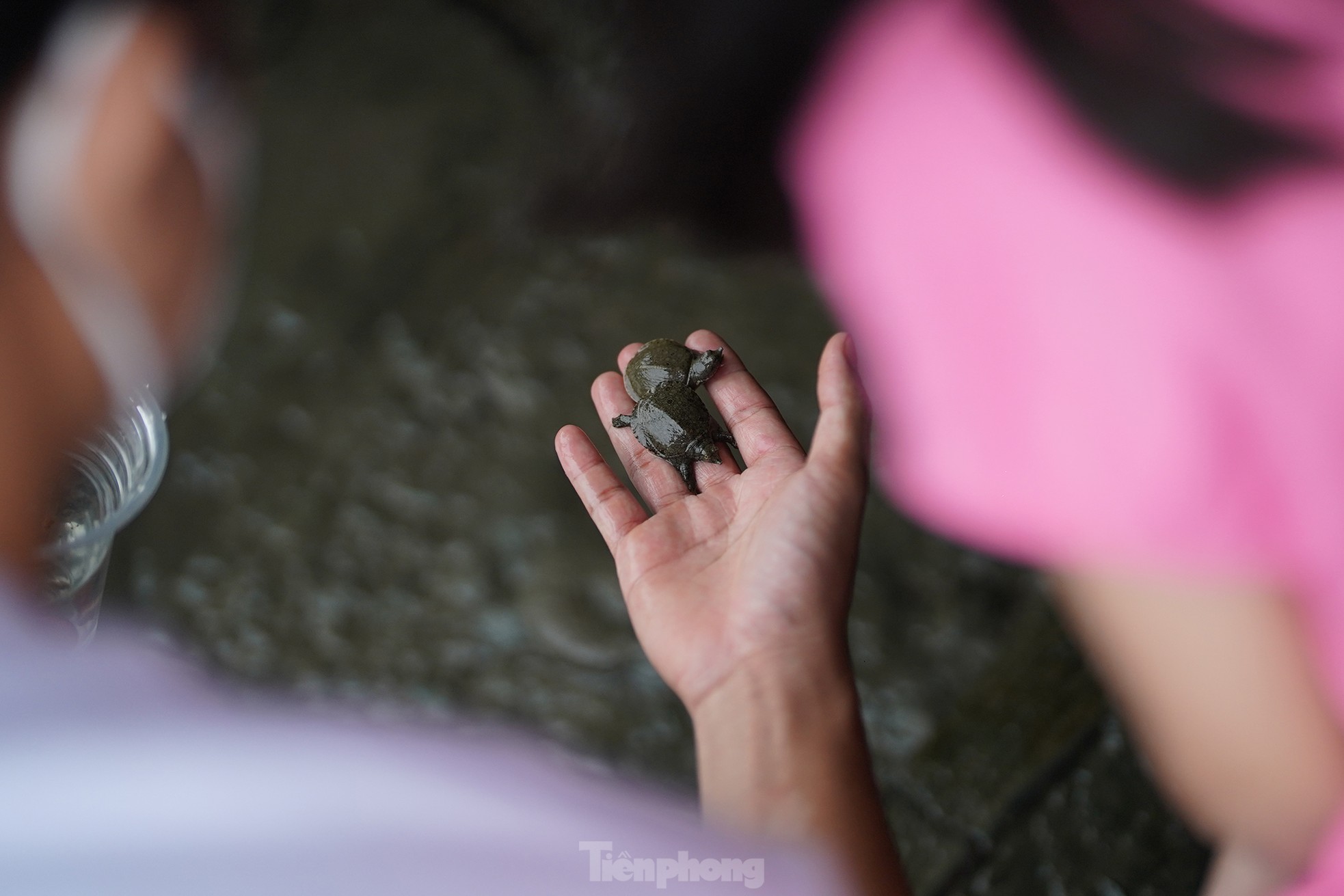
Some parents even bring their children here to release animals and teach them a lesson in animal love.
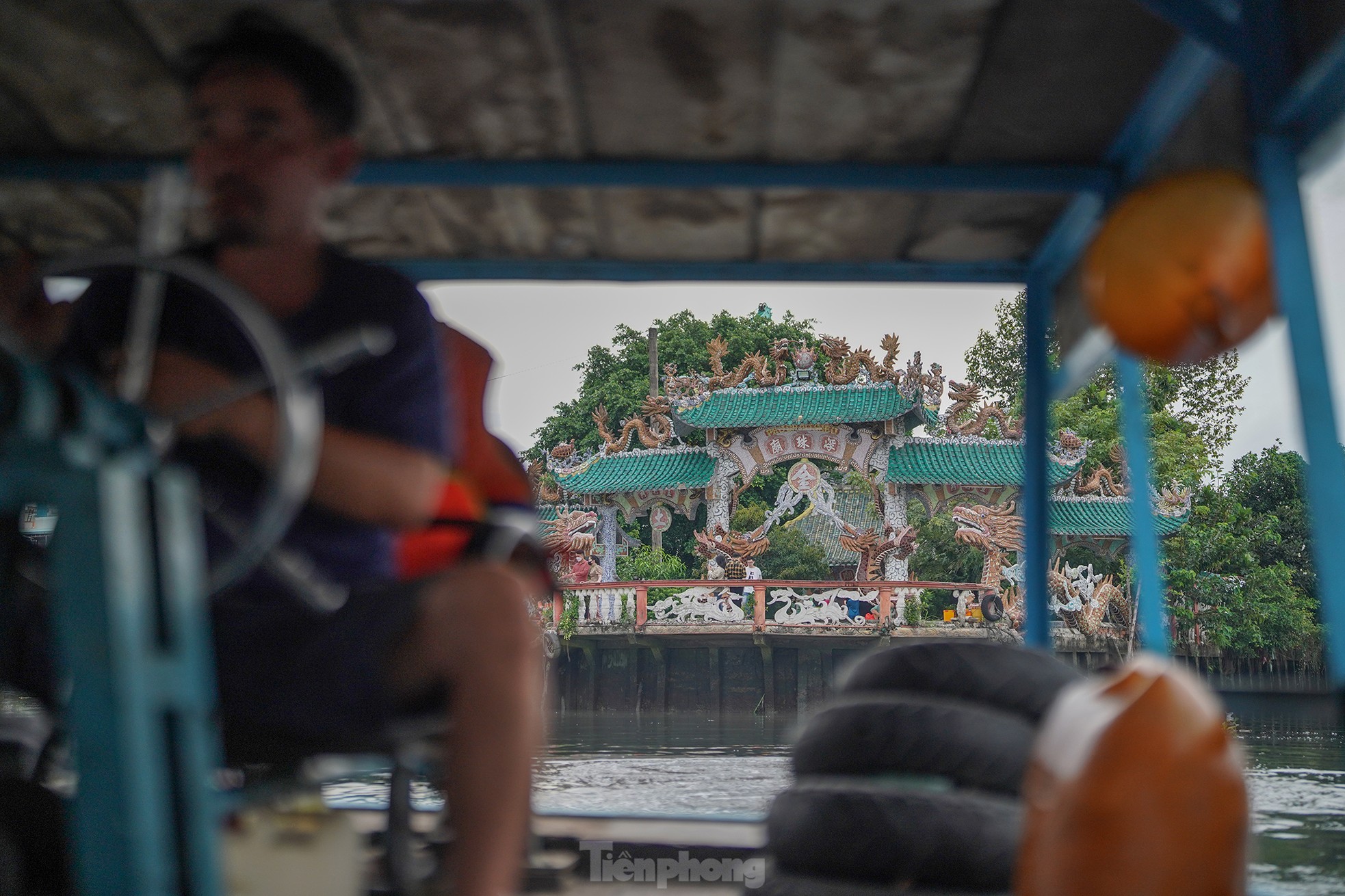
There is an oral tradition that around the 18th century, a man fishing on this stretch of river picked up a woman's body. At that time, at the location of the floating temple, which was originally a foot-shaped island, luxuriant trees. The fishing boat brought the woman's body to be buried on the island and then set up a small temple to worship the evil spirit. Originally a small temple made of bamboo and leaves, built by river merchants and people in the area, worshiping Ngu Hanh and Long Mau to pray for ships passing on the river to sail smoothly.
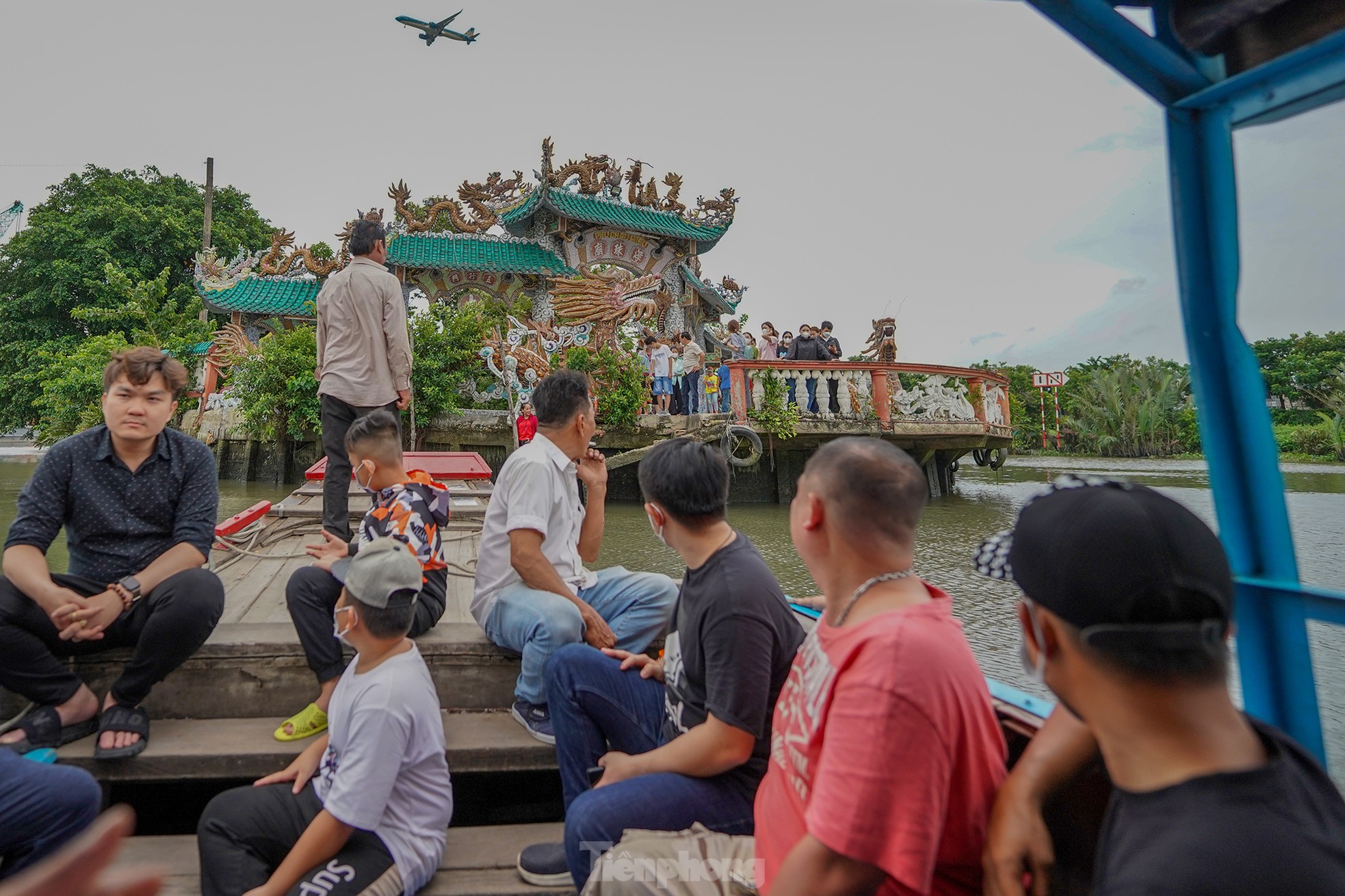
There is a legend that, nearly two hundred years ago, a fisherman casting a fishing net on the Ben Cat river (in Hanh Thong commune, canton of Binh Tri Thuong, Go Vap district, Gia Dinh province) picked up a statue that was It is believed that it is the statue of Lady Thuy Te. Since then, people in the area have built a shrine to worship her on the abandoned island to pray for good weather and good weather, and boats to return safely.
Ho Chi Minh City
2111 view
Update day
: 31/07/2023
Phạm Nguyễn


 vn
vn en
en ja
ja ko
ko zh
zh

















































































































